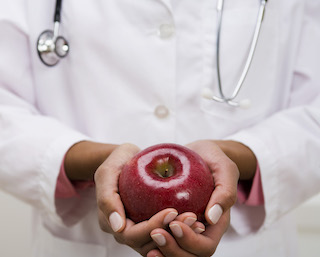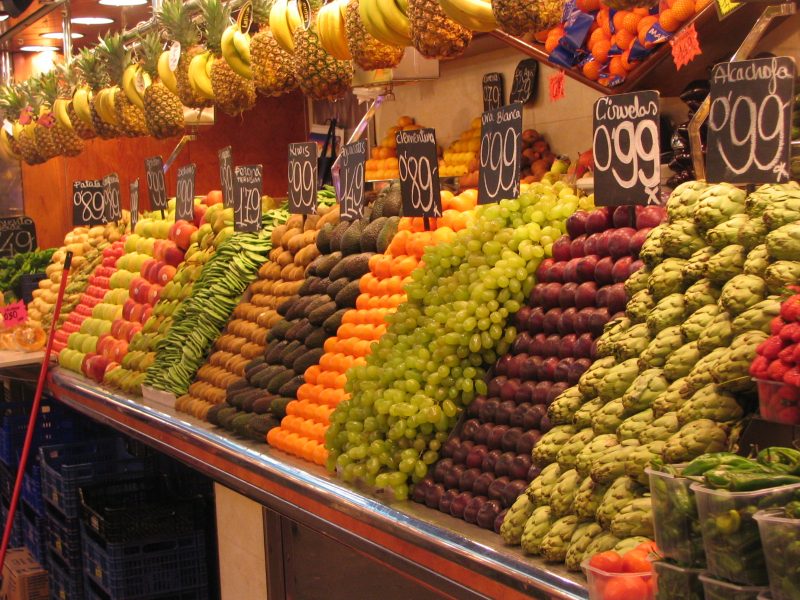9 Best Food For Diabetic Patients

9 Best Food For Diabetic Patients
Diabetes management is a crucial aspect of living with diabetes, and diet plays a significant role in controlling blood sugar levels. For diabetic patients, making informed food choices is essential for maintaining stable glucose levels, promoting overall health, and preventing complications. This article delves into the best foods for diabetic patients, exploring their benefits, and offering practical tips for incorporating them into a balanced diet.
Diabetes and the role of diet
Diabetes is a chronic condition characterized by high blood sugar levels due to issues with insulin production or insulin resistance. There are two main types of diabetes: Type 1, where the body does not produce insulin, and Type 2, where the body does not use insulin effectively. Proper dietary management is key in controlling blood glucose levels, reducing the risk of complications, and maintaining overall well-being.
A balanced diet for diabetic patients should focus on controlling carbohydrate intake, choosing food with a low glycemic index, and incorporating a variety of nutrient-dense options. The goal is to maintain stable blood sugar levels, support cardiovascular health, and ensure that the body receives essential nutrients.
Food for diabetic patients
Incorporating the following foods into a diabetic-friendly diet can help manage blood sugar levels and provide essential nutrients:
1) Leafy green vegetables
Leafy greens such as spinach, kale, and Swiss chard are excellent choices for diabetic patients. These vegetables are low in carbohydrates and have a minimal impact on blood sugar levels. They are also rich in vitamins, minerals, and antioxidants. For instance, a cup of cooked spinach contains about 6 grams of carbohydrates and is packed with vitamin A, vitamin K, and folate. Adding leafy greens to salads, soups, or smoothies can enhance your diet without spiking blood sugar levels.
2) Whole grains
Whole grains are a better choice compared to refined grains due to their higher fiber content and lower glycemic index. Foods such as quinoa, barley, and brown rice provide sustained energy and help regulate blood sugar levels. For example, a half-cup serving of cooked quinoa contains about 20 grams of carbohydrates and 2.6 grams of fiber. The fiber in whole grains slows down the absorption of glucose, reducing blood sugar spikes and promoting digestive health.
3) Nuts and seeds
Nuts and seeds are nutrient-dense foods that offer healthy fats, fiber, and protein. Almonds, walnuts, chia seeds, and flaxseeds are particularly beneficial for diabetic patients. For instance, a 1-ounce serving of almonds provides approximately 6 grams of protein, 3.5 grams of fiber, and healthy fats. Nuts and seeds can help improve blood sugar control and provide satiety, making them a great addition to snacks or meals.
4) Legumes
Legumes such as lentils, chickpeas, and black beans are excellent sources of plant-based protein and fiber. They have a low glycemic index and can help stabilize blood sugar levels. For example, a cup of cooked lentils contains about 40 grams of carbohydrates and 16 grams of fiber. The high fiber content in legumes slows glucose absorption and contributes to better blood sugar management.
5) Fatty fish
Fatty fish like salmon, mackerel, and sardines are rich in omega-3 fatty acids, which have anti-inflammatory properties and support heart health. These fish are also low in carbohydrates, making them suitable for diabetic patients. A 3-ounce serving of cooked salmon provides approximately 22 grams of protein and 2 grams of carbohydrates. Including fatty fish in your diet can help reduce the risk of cardiovascular complications associated with diabetes.
6) Berries
Berries such as strawberries, blueberries, and raspberries are low in carbohydrates and high in fiber and antioxidants. They have a low glycemic index and can be enjoyed as a healthy dessert or snack. For instance, a cup of strawberries contains about 11 grams of carbohydrates and 3 grams of fiber. The antioxidants in berries, such as flavonoids, can also help combat oxidative stress and inflammation.
7) Greek yogurt
Greek yogurt is a protein-rich dairy product that provides probiotics beneficial for gut health. Opt for plain, unsweetened Greek yogurt to avoid added sugars. A 6-ounce serving of plain Greek yogurt contains about 10 grams of carbohydrates and 15 grams of protein. Including Greek yogurt in your diet can help with blood sugar control and provide a satisfying, nutrient-dense snack or breakfast option.
8) Sweet potatoes
Sweet potatoes are a nutrient-rich carbohydrate source with a lower glycemic index compared to regular potatoes. They are high in fiber, vitamins, and minerals. A medium-sized sweet potato contains about 26 grams of carbohydrates and 4 grams of fiber. Sweet potatoes can be a healthy side dish or added to salads and casseroles, offering sustained energy without causing significant blood sugar spikes.
9) Avocado
Avocado is a low-carb fruit that provides healthy fats, fiber, and essential nutrients. It has a minimal impact on blood sugar levels and can help improve heart health. A half-avocado contains about 12 grams of fat, 1 gram of carbohydrates, and 5 grams of fiber. Adding avocado to salads, sandwiches, or smoothies can provide satiety and support overall health.
Tips for balancing your diet
In addition to incorporating iron-rich foods, it’s essential to follow these tips for balancing your diet and managing blood sugar levels:
1) Monitor portion sizes
Managing portion sizes is crucial for controlling carbohydrate intake and maintaining stable blood sugar levels. Using measuring cups or a food scale can help ensure that you are consuming appropriate portions of carbohydrate-rich foods. Additionally, paying attention to serving sizes can prevent overeating and help maintain a balanced diet.
2) Choose low glycemic index foods
Foods with a low glycemic index are absorbed more slowly and have a minimal impact on blood sugar levels. Focus on incorporating low-GI foods such as whole grains, legumes, and non-starchy vegetables into your meals. The GI of foods can be an essential tool for managing blood sugar and making informed dietary choices.
3) Combine carbohydrates with protein and healthy fats
Pairing carbohydrate-rich foods with protein and healthy fats can help slow glucose absorption and reduce blood sugar spikes. For example, combining a serving of whole grain with a portion of lean protein, such as chicken or tofu, can help stabilise blood sugar levels and provide balanced nutrition.
4) Stay hydrated
Proper hydration is essential for overall health and can support blood sugar management. Drinking water throughout the day can help prevent dehydration, which can affect blood sugar levels. Aim to drink at least 8 cups of water daily and limit the consumption of sugary beverages.
5) Plan balanced meals and snack
Planning balanced meals and snacks can help ensure that you are consuming a variety of nutrient-dense foods and maintaining stable blood sugar levels. Incorporate a mix of vegetables, lean proteins, whole grains, and healthy fats into your meals and snacks to provide sustained energy and support overall health.
6) Limit added sugars and processed foods
Added sugars and processed foods can lead to rapid blood sugar spikes and contribute to poor blood sugar control. Limit your intake of sugary snacks, beverages, and processed foods that contain refined carbohydrates. Instead, focus on whole, unprocessed foods that provide essential nutrients and support stable blood sugar levels.
7) Read food labels
Reading food labels can help you make informed choices about the foods you consume. Pay attention to the carbohydrate content, added sugars, and fiber content in packaged foods. Understanding food labels can help you select products that align with your dietary goals and support blood sugar management.
Consulting with healthcare professionals
Managing diabetes effectively involves more than just making dietary changes. Consulting with healthcare professionals, such as a registered dietitian or endocrinologist, can provide personalized guidance and support. They can help you develop a tailored meal plan, address specific dietary concerns, and monitor your progress.
Manage your diabetics with the right food
A well-balanced diet is a cornerstone of effective diabetes management, and choosing the right foods can significantly impact blood sugar control and overall health. Incorporating iron-rich foods such as leafy greens, whole grains, nuts, legumes, fatty fish, berries, Greek yogurt, sweet potatoes, and avocado can provide essential nutrients and support stable blood sugar levels.
By following practical tips for portion control, choosing low glycemic index foods, combining nutrients, staying hydrated, and avoiding added sugars, you can create a diabetes-friendly diet that promotes well-being and helps manage blood sugar levels. Consulting with healthcare professionals can further enhance your dietary approach and ensure that your nutrition supports your individual needs.
Embrace a variety of nutrient-dense foods and make informed choices to support your health and well-being as you navigate life with diabetes.



